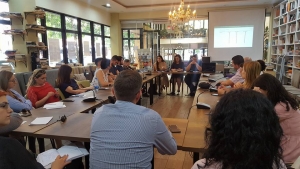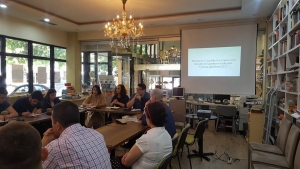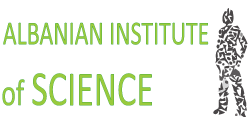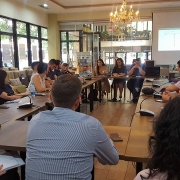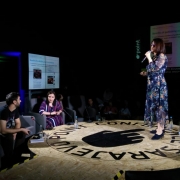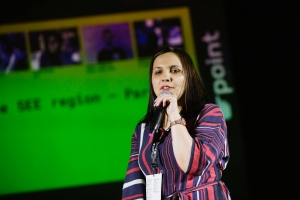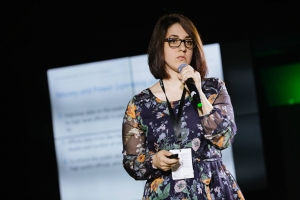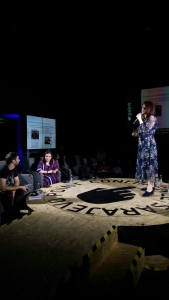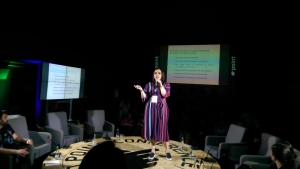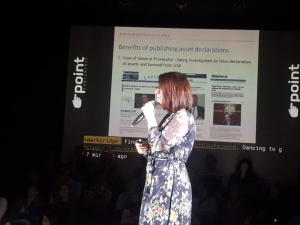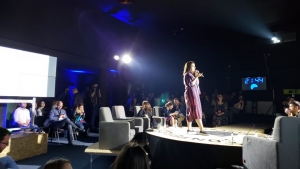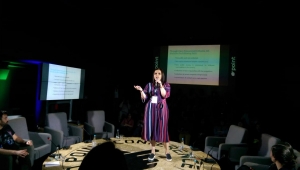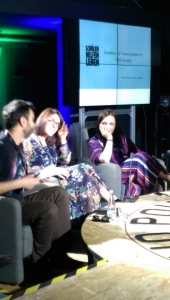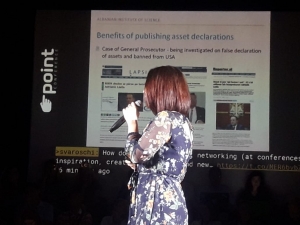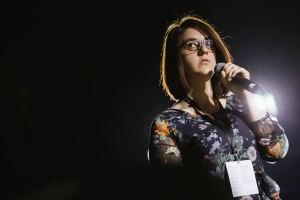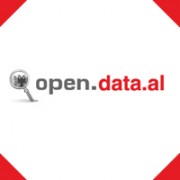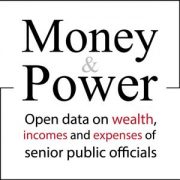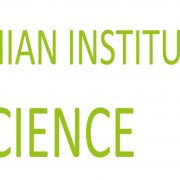Albanian Institute of Science (AIS) is a non-Governmental organization advocating for transparency, good governance, and accountability. The organization is recognized as a promoter of open and transparent data (Open Data Albania). In addition to having published electoral spending and incomes using an open data format, AIS, through its Money Government and Politics and Za’Lart programs has published, analyzed, and raised awareness continuously about details and problems with the financing of the latest electoral campaigns.
In the electoral processes of 2013 and 2015, AIS was part of the initiative of the Electoral Room, a joint initiative of several organizations for monitoring and contributing to free and fair elections. Currently, AIS is also the claimant in a court process against the largest political parties in the country, asking the court to express itself on whether the political parties are obliged, as electoral parties, to respond to requests for information regarding their sources of electoral financing at any time, and in this case, in real time during the electoral campaign. The case is now with the High Court.
Our proposals focus only on the part of electoral financing, from Article 86 to Article 92 of the Electoral Code.
Donations to be made only through bank accounts.
The law should require all donations from the non-public sector to be made only through the banking system (and not in cash), and this should apply not only to donations exceeding 100 thousand Albanian lekë. This requires changes to Article 90, point 2 of the Electoral Code. In earlier campaigns, similar to the latest one, donations in cash represent up to 50% of the total nonpublic funds secured for campaigns.
Real time information about monetary donations for campaigns.
In fact, there is already a basis for such regulation in the Constitution, Article 9, paragraph 3, which clearly specifies that The financial sources of the parties, as well as their expenditures shall always be made public. This regulation has also been in the Code before, but it was removed with the changes made to Article 90 paragraph 1, which provided that The list of persons donating no less than 100 thousand lekë, and the respective amounts, shall always be made public. With the changes made to Law No. 74.2012, dated 19.07.2012, this sentence was removed, making thus regress with the right to public information about the supporters of political parties through donations even before the voting day.
All relations of donations, subsidies, or crediting between media outlets and electoral subjects must be prevented through clear legal provisions.
The article on the conflict of interest, i.e. Article 89, excludes subjects, who exercise media activities, or who are shareholders in such subjects, from the right of being donors of an electoral subject. This is right in terms of the principle of independence of the media and separation of the two powers. On the other hand, Article 84, paragraph 6 of the Electoral Code creates an additional financial source for the important political parties. Media is obliged by law to donate free time to the parties, which have already taken a certain air time of paid advertising. This article needs to be abrogated, because: 1. It creates contradictory donation relations to those foreseen by Article 98; 2. It creates difficulties with monitoring; 3. It is used in an arbitrary manner even in local government elections, although the law provides for that only for the parliamentary elections; 4. We are not in a situation, where the political parties have problems affording paid advertising, and the political advertising has become so massive in the media coverage of the electoral campaigns that it would be good for every electoral subject to rather focus on the quality of their message and advertising, and not its quantity.
Besides, it is also time where audio-visual media does not consist of the licensed national media only. There are nowadays various forms of audio-visual broadcasting using new technology.
The regulation of free advertising by the Law on Political Parties of May 2017, a law which is in contradiction with the current Code, is also equally wrong and contradictory.
The new Electoral Code will have to make sure that media outlets are not allowed to donate to electoral campaigns. Media companies might, however, agree on commercial contracts with the political parties, which should, again, be accessible to the public, when it comes to electoral campaigns. Similarly, careful considerations should also be given to situations of unpaid bills or debts. Commercial companies may, certainly, ask for such bills and debts to be paid by the political parties, but when the latter is a political party in power, this could lead to intimidation and influence. In order for this nit to happen, and to avoid debts turning into donations, the electoral law must enable the CEC to intervene when allocating annual or electoral funds to the political parties, considering the payment of unpaid and recognized debts during the electoral campaign as a priority. The same should apply to other debts owed to non-media subjects by the political parties in allocation of public funds.
Ensure more effective prevention of the conflict of interest on the side of the donors.
More extensive legal provisions must be introduced to prevent, and to ensure the publication and control of donors’ conflicts of interest. Article 89 of the Electoral Code describes some situations when someone may not donate. This article needs to extend to more situations. Thus, the word ‘shareholder’ needs to be replaced by the word ‘owner’. In addition to the provisions on public contracts and funds, there must be other provisions on conflict of interest even in cases of benefits from programs of public subsidies; crediting guaranteed by public funds; benefits from privatization of public assets; benefits from legalizations; benefits from public programs in the interest of business, etc.
The legal provision on the administrative verification of conflicts of interest.
It would be appropriate for the CEC to have the power to initiate the administrative verification and investigation through requests for information addressed to public institutions on compliance with the prohibitive provisions on the conflict of interest. This could include verification with the tax authorities about debts, the Public Procurement Agency for public contracts, the Concessionary Register for public concessionary agreements, and so on. The Code must also contain sanctions in case of false declarations of conflict of interest by donor.
More realistic timeframes for financial reporting on the electoral campaign.
The current Code determines a 30-day period for electoral reporting and auditing. Changes in the law enabled, but did not force a longer period. Ideally, the timeframe must start earlier than 30 days before the electoral campaign.
Limitation of the total electoral expenditures are not grounded and leads to parties not declaring their real expenditures.
There is no reason for such limitations. Let us give the political parties and subjects to legalize their expenditures and be transparent in reporting the support they get in the form of legitimate financial instruments for the campaign. Fundraising by electoral subjects for their campaigns should be seen not only as a possibility, but also as a form of voter’s expression of trust through donations. Therefore, paragraph 3 of Article 90 must be abrogated.
Preservation of the mixed public and nonpublic funds for the electoral subjects.
AIS is not in favor of shifting to only one type of financing. We are against proposals of fully public financing, as this would identify parties with state bodies.
Clear regulation of financing through loans and declarations of loan data on a special register.
Article 87/1, point ç “Loans”. Loans will have to be declared and the types of data to be declared must be clearly described in the law, such as the guarantors, terms, conditions, form of application, and the identity of the crediting subject. The law must also clarify whether loans can be taken from institutions not licensed for financial activities, and whether foreign parties may give loans to, or guarantee loans taken from the Albanian electoral subjects.
Considerations should be given to enabling financial reports at the level of local branches of political parties I the case of general elections, and candidates’ electoral staff office in the case of local elections.
There is no such provision at the moment in the Electoral Code or Law on the Political Parties. It would be useful to further discipline financial reporting by electoral zones.
The Electoral Code must clearly state whether donations from subjects registered as non-Governmental organizations are allowed.
The current Code does not include any prohibitive provision. The law in NGOs, on the other hand, contains some non-exhaustive provisions. Some countries in the region are concerned about political parties being financed by foreigners through local NGOs. However, even though this is not actually the case for Albania, the lawmakers might consider either prohibiting or better regulating such financing.
-
The law must require accurate reporting on expenditures and contractors, when the latter are foreign. Në secilin nga këto raste të kërkohet raportim me një format të veçantë të identitetit të kontraktorit; përkatësia e së drejtës tregtare që rregullon ekzistencën e këtij kontraktori; të dhënIn each case, reporting must be made using a special template, including the identity of the contractor, his legal status, and information about the contract(s) signed.
